Canadian and American researchers have made a discovery that could provide hope for lung cancer patients.
In a study published in Science Translational Medicine on Jul. 2, they explained that a protein long known to be associated with the neurodegenerative disease Alzheimer’s can help the cancer spread from a person’s lungs to their brain.
The research endeavour was led by McMaster University’s Dr. Sheila Singh. She is a neurosurgeon who currently serves as a professor and director of the school’s Centre for Discovery in Cancer Research. The Cleveland Clinic and Case Comprehensive Cancer Center in Ohio collaborated with McMaster on the investigation.
This Hamilton, Ontario school highlighted that the protein, BACE1, is a driving force behind a high-rate of lung cancer patients developing brain tumours. About 40 per cent of those with non-small cell lung cancer, the most common type, will have the misfortune of getting one.
“The discovery of BACE1 opens the door to repurposing existing treatments like Verubecestat [an Alzheimer’s drug] to potentially prevent or slow the spread of lung cancer to the brain,” Singh explained, “where treatment options are currently very limited.”
Mice were an essential part of the complicated research initiative, along with a state-of-the-art gene activation technique known as a genome-wide in vivo clustered regularly interspaced short palindromic repeats (CRISPR) activation screen.
“The technique allowed researchers to systematically activate thousands of genes one by one in lung cancer cells and put the modified cells into mice,” McMaster specified in an article. “When BACE1 was switched on, the cancer cells were far more likely to invade the brain.”
They ultimately discovered that mice given Verubecestat, which blocks BACE1 activity, had a significantly reduced rate of tumours and lived longer.
Read more: Breath Diagnostics leader speaks at lung cancer education event in Louisville
McMaster has another influential lung cancer researcher
Singh is not the only professor at the Canadian institution to make noteworthy contributions in the lung cancer field.
Waël C. Hanna, the school’s Division Head of Thoracic Surgery and Chief Medical Officer at the software development company NodeAI, has been a pioneer.
Development of the Canada Lymph Node Score is one of his greatest accomplishments. This AI-powered ultrasound tool can predict lymph node metastasis in NSCLC while minimizing the need for invasive biopsy measures.
Hanna is also known for performing Canada’s first fully robotic esophagectomy: a complex procedure for esophageal cancer. His research lab at McMaster has produced 51 peer-reviewed papers on thoracic surgery and lung cancer care.
Furthermore, the McMaster professor is one Canada’s foremost authorities on robotic-assisted thoracic surgery. He is also an expert in lung cancer staging/treatment planning.
His company recently received a prestigious C$100,000-dollar award for its AI-powered tech’s ability to optimize lymph node evaluation in NSCLC patients. The Canada Lymph Node Score is a core component of NodeAI’s technology.
In addition to the recent study led by Singh and Hanna’s contributions in the field, McMaster has played a significant role in clinical trials examining lung cancer drugs and screening initiatives.
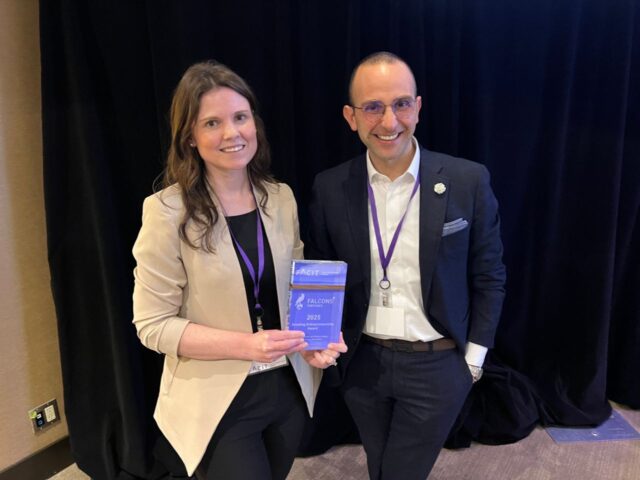
Hanna (right) receiving the Falcons’ Fortunes Award in April. Photo credit: NodeAI
Read more: Breath Diagnostics now offering a compelling investment opportunity
Follow Rowan Dunne on LinkedIn
rowan@mugglehead.com

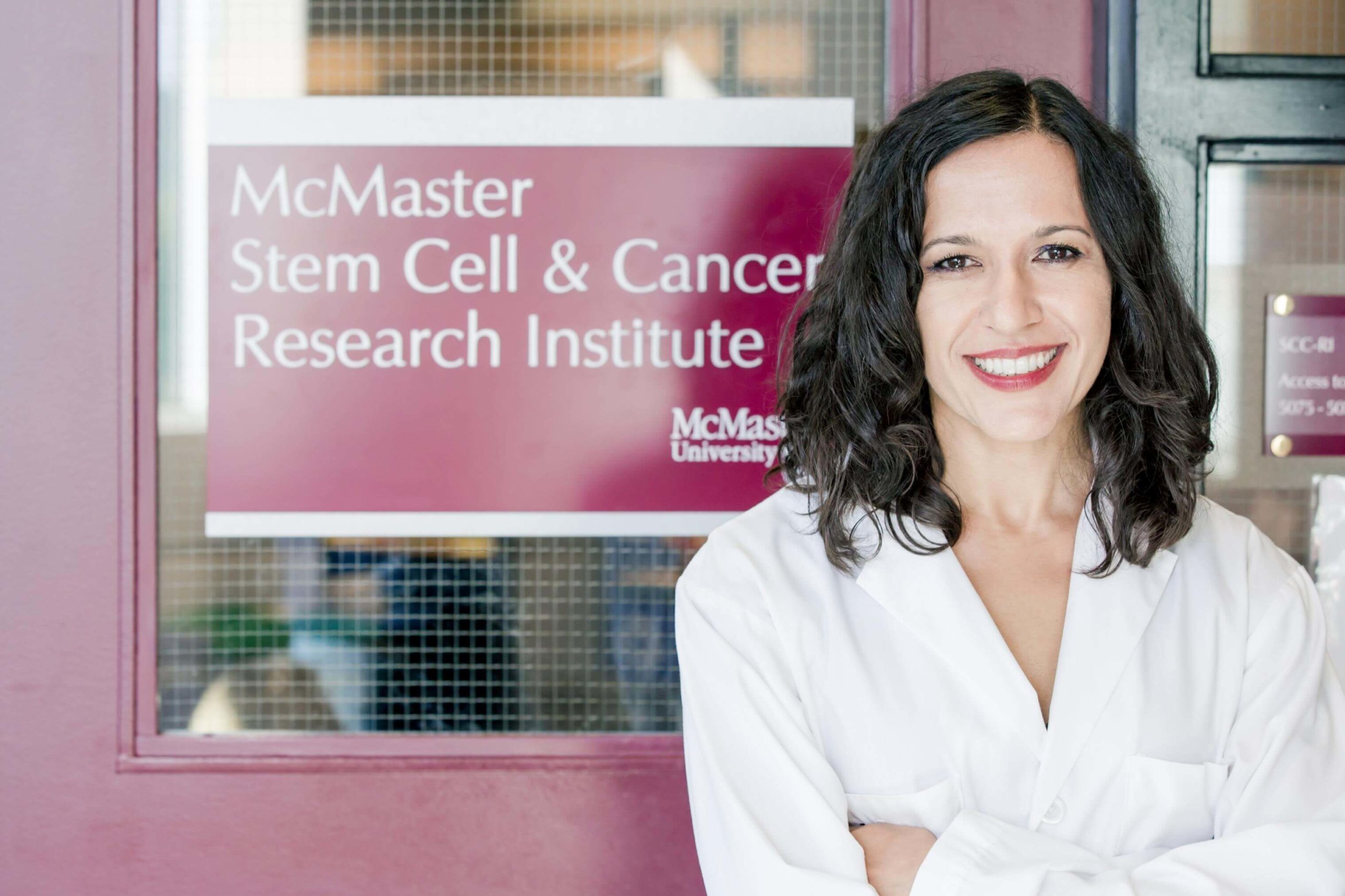







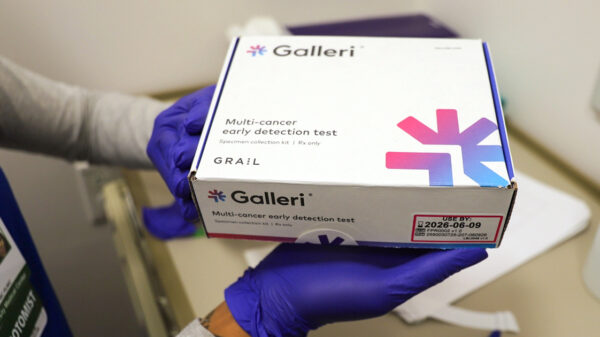
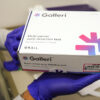
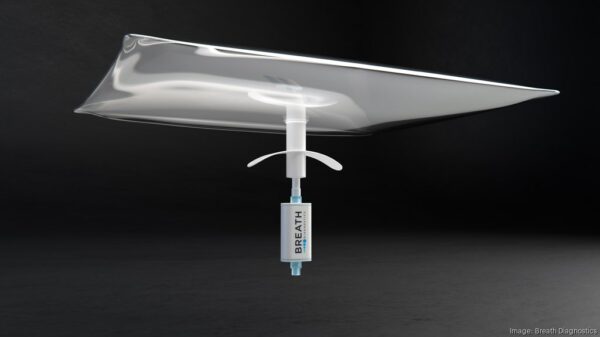



Angela Monica
July 11, 2025 at 7:33 am
I would like to share my husband’s journey with Alzheimer’s disease. He received his diagnosis two years ago at the age of 57, presenting with symptoms such as memory loss, difficulty finding words, and a pulsating sensation throughout his body. Initially, he was prescribed donepezil for six months, which was subsequently replaced with memantine. During this period, he was also diagnosed with dementia and began experiencing hallucinations and a diminished connection to reality.Suspecting that the medication might be contributing to his symptoms, and with the knowledge of his physician, I discontinued the memantine and commenced a natural herbal formula for Alzheimer’s from AKNNI HERBAL CENTRE. Within three weeks of using the AKANNI HERBAL Alzheimer’s disease natural herbal formula, his symptoms significantly declined. My husband, who is now almost 61, is doing exceptionally well, with the disease appearing to be entirely reversed. (Visit w w w.aknniherbscentre .com)